Rose Oil vs Rosehip Oil in Skincare
Last Updated on June 29, 2023 by Aysenur Yashar
The benefits of roses just do not seem to end – they are beautiful, they smell amazing, they make great gifts, and their oils are just what your skincare routine needs to feel luxurious. Rose and Rosehip flowers belong to the same family but they are two different species producing two completely different oils. So the debate this time is real – which rose species produces the best oil and for which skin types they are most suitable. Here is the rose oil vs rosehip oil.
Is Rosehip Oil the same as Rose oil?
Although rose and rosehip share, almost, the same name they are not referring to the same oil type. Rosehip oil is not the same as rose oil. Rosehip oil is obtained from the fruits and seeds of the rosehip plant which is why this oil is also known as rosehip seed oil. The rosehip plant belongs to the wild roses and it is commonly found in the Andes, Chile, and Central Europe.
Rose oil, on the other hand, is a member of the family of essential oils. It is made from our beloved, rich in essential oils and beautiful rose petals. The rose plants which give the best essential oils can be found in Europe and certain parts of Asia. The most famous rose is the damask rose coming from Bulgaria.
What is Rose Essential Oil?
Rose essential oil is produced from the rose petals of the luxurious rose plant – Rosa Damascena. The extraction process of rose oil is mainly through steam distillation.
Steam distillation works by adding heat to the rose plant material until the plant cells break down and the rich components inside are captured into an essential oil. Producing rose essential oil is an extremely difficult and expensive product, it takes around 3 kg of roses to produce just 30 ml of essential oil! Can you believe this?!
This is one of the reasons why Rosa Damascena also known as the Bulgarian rose, is a very luxurious skincare product.
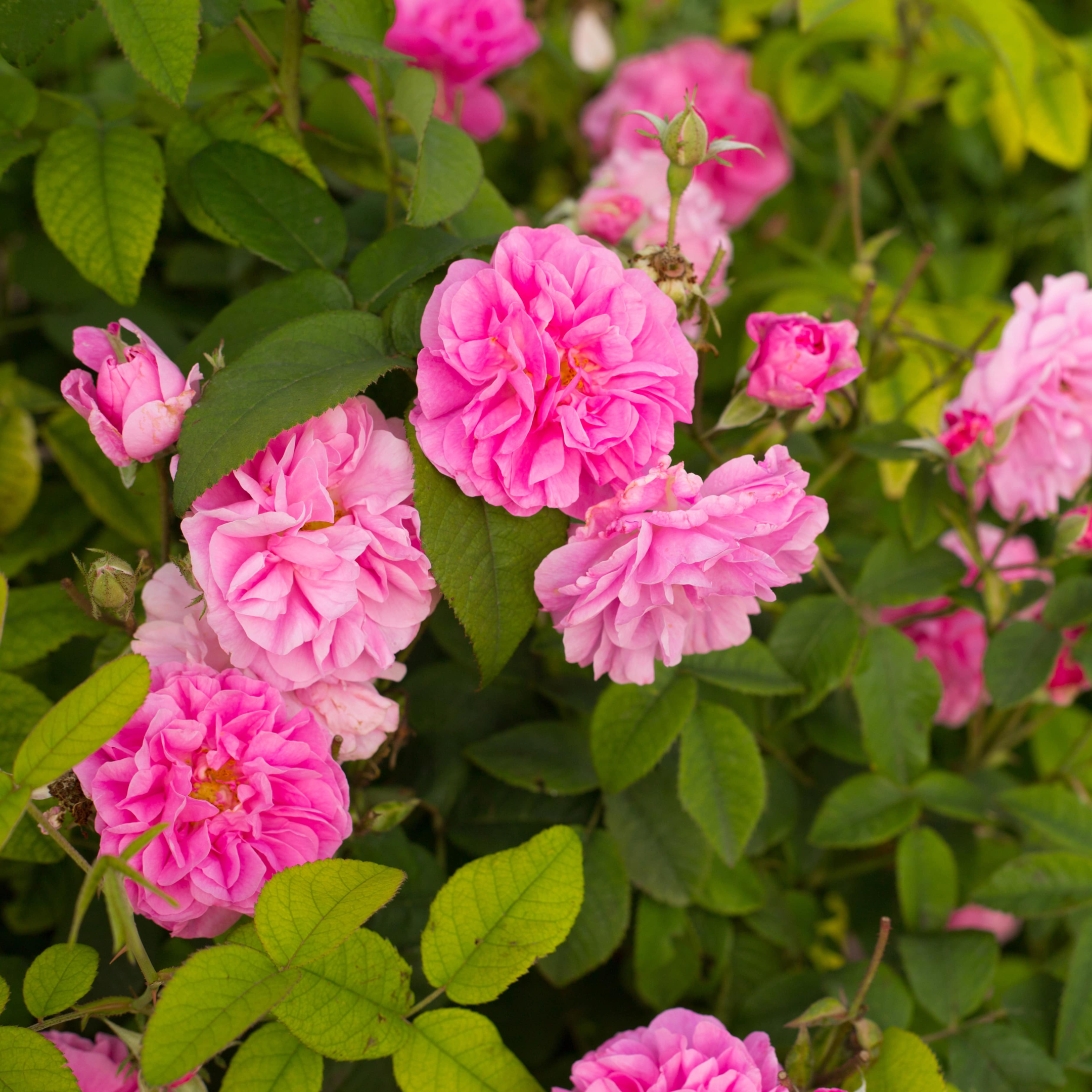
What is Rosehip oil?
Contrary to Rose oil, Rosehip oil is extracted from the fruits and seeds of the rosehip species such as Rosa Rubiginosa, Rosa Canina, and Rosa Moschata. Depending on which species of plant the oil is extracted their biochemical and nourishing properties might differ.
Rosa Moschata actually refers to Rosa Rubiginosa hence they can be used alternatively. If you are curious of the debate on which rosehio oil – Rosa Rubiginosa vs Rosa Canina, make sure to check out this blog!
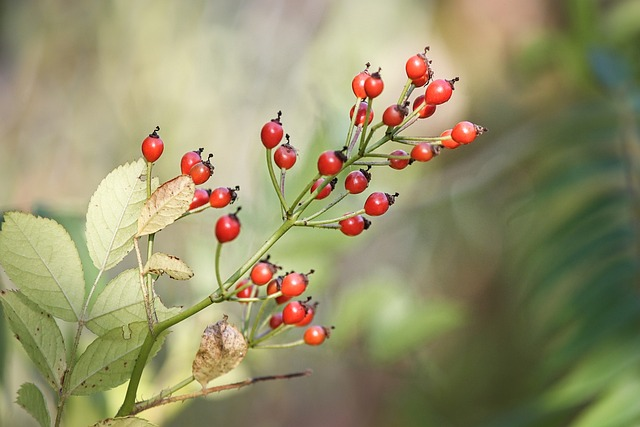
Rose Oil vs Rosehip Oil- Biochemical Properties
What are the Biochemical Properties of Rosehip oil?
Rosehip oil has a deep rich red color but it is also rich in fatty acids and vitamins making it a superstar skin nourisher. The fatty acid content of Rosehip oil from Rosa Rubiginosa is just great for our skin.
- linoleic acid – 44%
- oleic acid – 14%
- linolenic acid – 34%
Rosehip oils are rich in essential fatty acids, which makes them really suitable for nourishing and moisturizing.
Rosehip oil is also rich in vitamin C which is a potent anti-oxidant and the number one skincare ingredient fighting hyperpigmentation. Rose hip oil also contains a good amount of vitamin E which helps with the treatment of post-surgical scars.
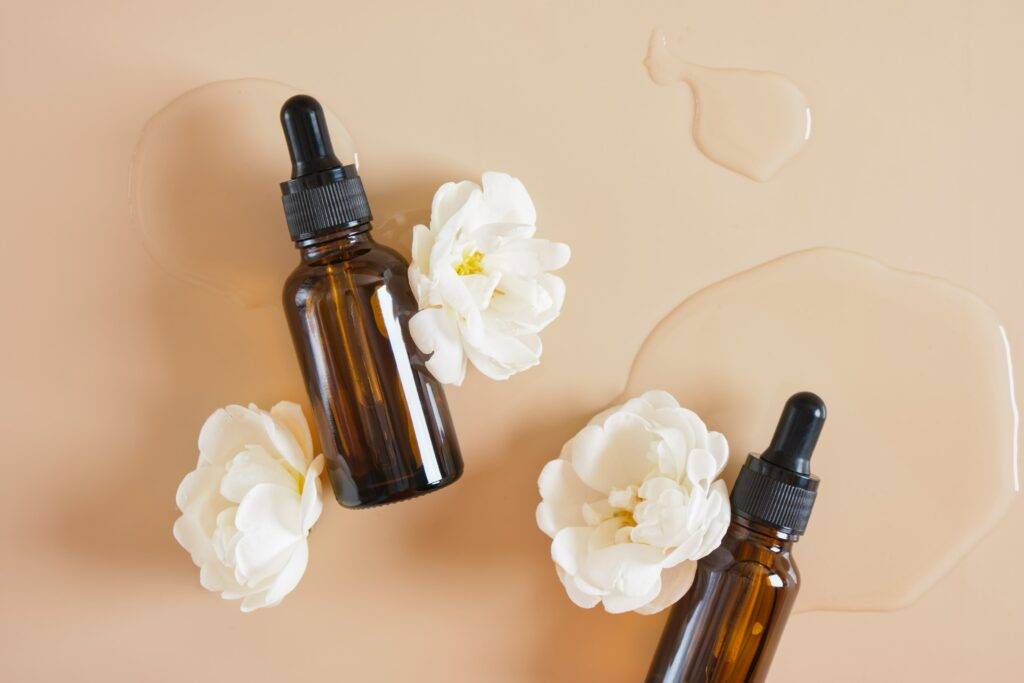
These two vitamins give rosehip oil anti-inflammatory and skin-brightening benefits!
Another incredible benefit of the pure rosehip seed oil is the good amount of vitamin A, beta carotene, it contains. To be more specific it contains tretinoin which is an incredible, incredible, skincare ingredient. It is a potent component that is used in the treatment of acne – making rosehip oil incredible for acne-prone skin.
But Tretinoin is also incredible in preventing premature aging and the visibility of skin wrinkles.
Make sure to opt for the cold-pressed rosehip oil to get the most out of the tretinoin! Read this article about rosehip oil and retinol to learn more details!
Rose hip oil is also rich in arachidonic acid which promotes skin cell turnover and collagen production.
What are the Biochemical Properties of Rose essential oil?
Rose essential oil is an incredible ancient healer. It has such an incredible chemical composition that it most likely can help with many skin problems and other diseases as well.
Rose oil is rich in citronellol, geraniol, and nerol. These compounds are the ones that give damask rose its antimicrobial properties.
Rose oil also has antiseptic properties which makes it suitable for irritated skin and even in conditions like eczema, rose oil can still be suitable.
Rose oil is also rich in vitamin C and phenolic compounds. They give this oil great anti-oxidant properties which make it suitable for an anti-aging routine as well!
Chart of the two oils!
I love comparing skincare products and here is a small summary graph I created!
| Effects on Skin | Rose Essential Oil | Rosehip Oil |
| Anti-Inflammatory | ✔︎ | ✔︎ |
| Anti-Septic | ✔︎✔︎✔︎ | |
| Anti-Aging Benefits | ✔︎ | ✔︎✔︎ |
| Anti-Acne | ✔︎ | ✔︎ |
| Moisturising | ✔︎ | ✔︎✔︎ |
| Suitable for Sensitive Skin | ✔︎✔︎ | |
| Targets Scar Healing | ✔︎ | |
| Targets Hyperpigmentation | ✔︎ | |
| Can Trigger Allergic Reaction | ✔︎✔︎ | |
| Smell | Fresh Roses | Nutty & Earthy |
Rose Oil vs Rosehip Oil – What are the Skin Benefits?
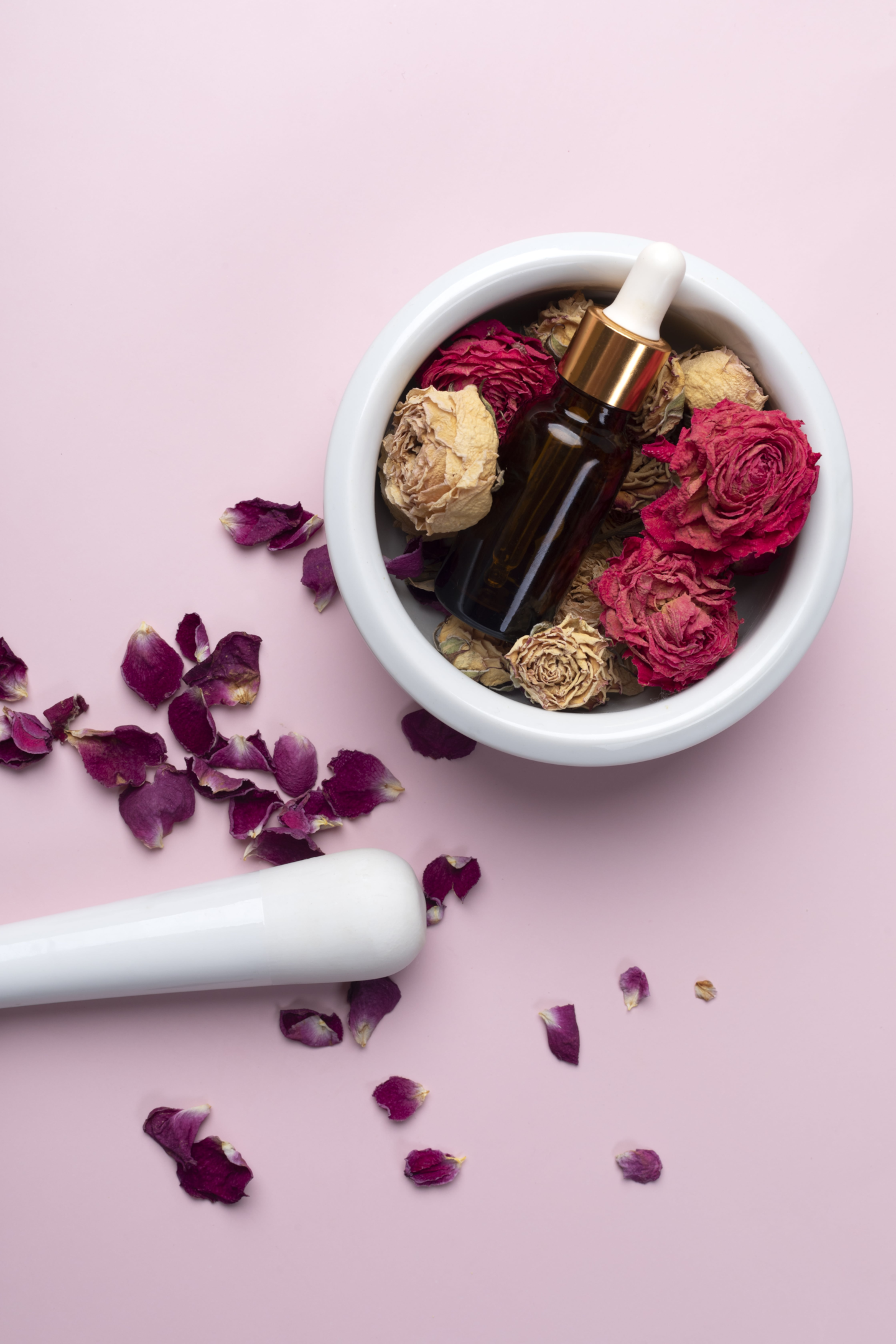
Rose oil is an essential oil and rosehip oil is a carrier oil. This means that rose oil contains more volatile components and is great for aromatherapy and the perfumery industry, on the other hand, rosehip oil can be used to deliver essential oils onto our skin or used on its own.
Both of them are essentially different in their composition and function and its fair to say that they can be complementary to one another (they make a great team by the way, especially for mature skin)
So let me try to convince you that they make a great team! Here is to rose oil vs rosehip oil – the skin benefits!
What are the Skin Beneftis of Rosehip oil?
Rosehip oil is one of the most potent carrier oils and it has many benefits to your skin including anti-inflammatory benefits, balancing properties, and promote collagen production. On top of that, it is also a non-comedogenic oil – it does not have the property of clogging pores!
Rosehip oil, with its high Vitamin A, can help with skin elasticity, hyperpigmentation, and stretch marks. If you also want your post-surgical scars treated, well you already know, rosehip oil is your to-go!
What are the Skin Beneftis of Rose essential oil?
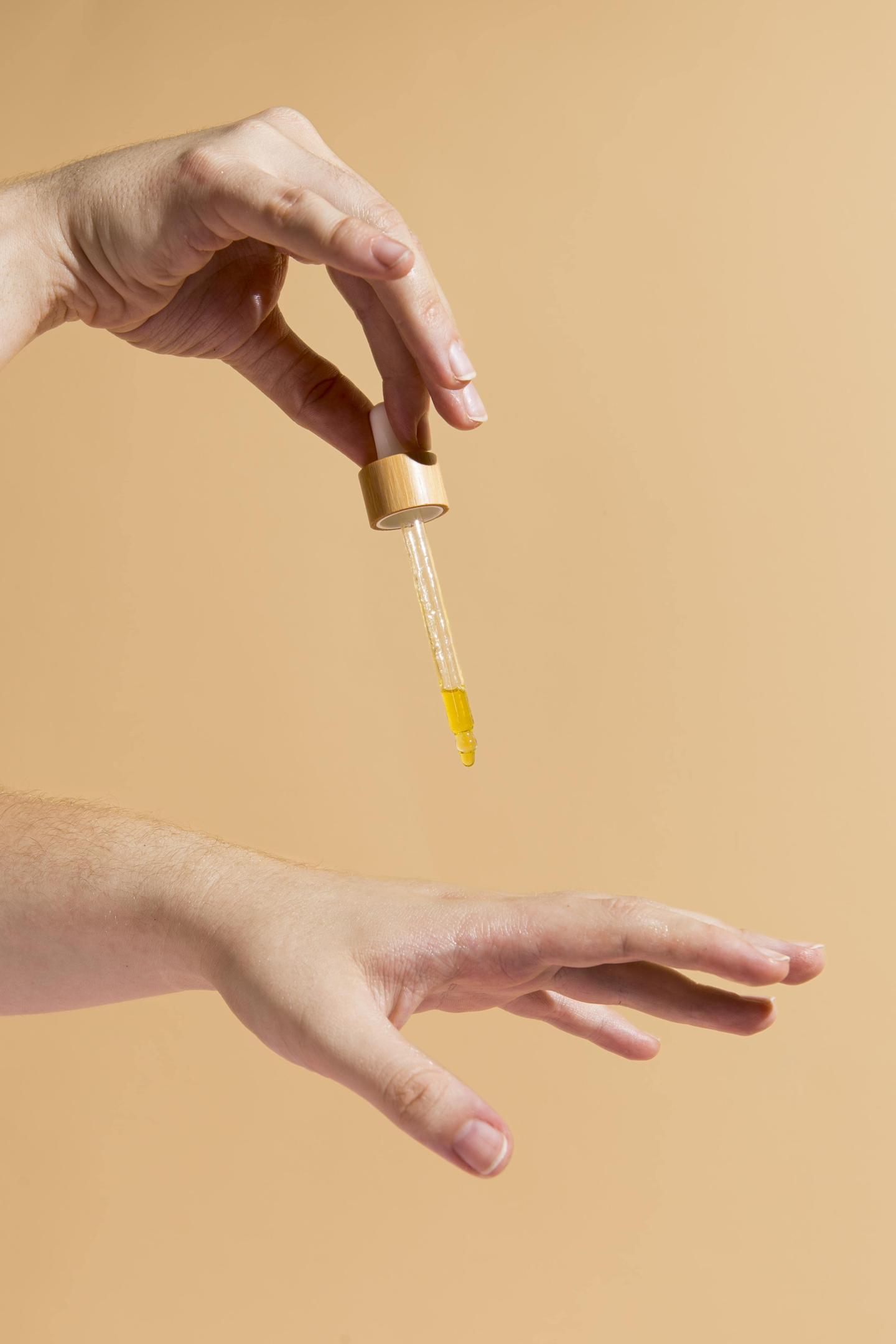
Rose essential oil has incredible astringent and antimicrobial properties. It can be a supporting part of
any skincare routine dedicated to fighting P.acnes which is the main bacterial strain causing acne.
Damask rose also has great antioxidant benefits which help with repairing UV and pollution damage. This in itself helps cell longevity and cell protection making it a great anti-aging agent!
The astringent properties of rose oil can help calm down an irritated and inflammed type of skin and bring back the balance to the skin’s barrier.
For Which Skin Types Can You Use Rose Oil and Rosehip Oil?
Rosehip oil is suitable for any skin type and it helps with many skin conditions. It does not clog pores and the high amounts of tretinoin make it suitable for oily skin. Tretinoin acts on the receptors on the skin cells and helps reduce sebum production.
Rose hip oil is also good for sensitive skin as the high amounts of fatty acids and vitamins can help with the damaged barrier.
The rich essential fatty acid profile of rosehip oil makes it extra suitable for the nourishment that dry skin needs. Enjoy some skin-soft moments!
Rose oil is a potent essential oil so I would advice to be cautious if you have sensitive skin. Make sure to dilute it correctly and do a small test on your forearm.
Rose oil, however, has many anstringent and anti-microbial properties couples with anti-oxidant activity meaning that it can help in the skin care aiming at calming down of inflamed skin!
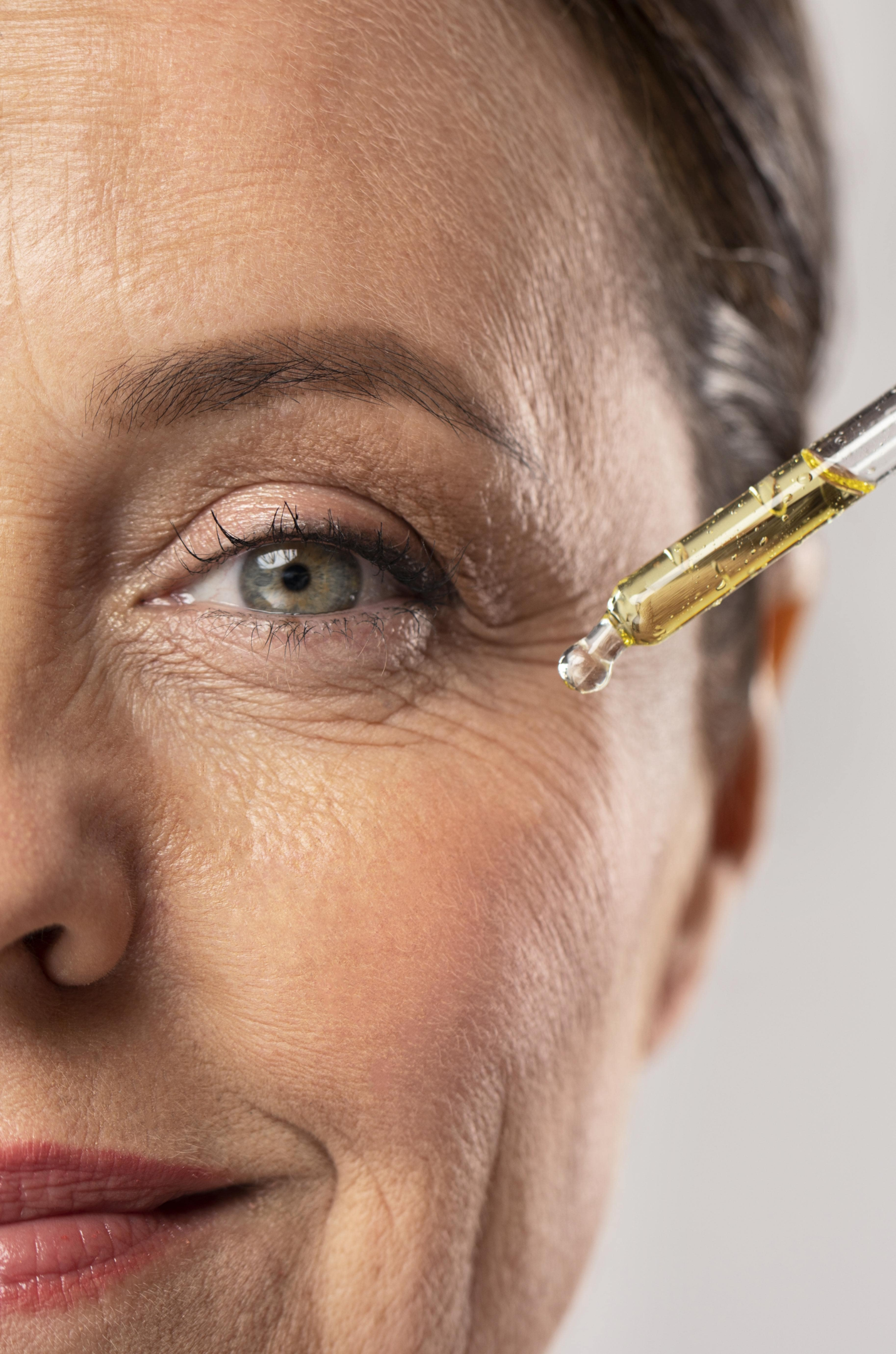
Rose oil is an oil so a dry skin would always benefit from the extra moisture.
Just as mentioned above this oil is suitable for mature skin as well!
How to Easily Add Rose Oil and Rosehip Oil to Your Skincare Routine?
Rosehip oil is a carrier oil which means that it can carry other oils with itself through the skin’s surface into its deeper layers. Rosehip oil you can directly apply to your skin, it is completely safe!
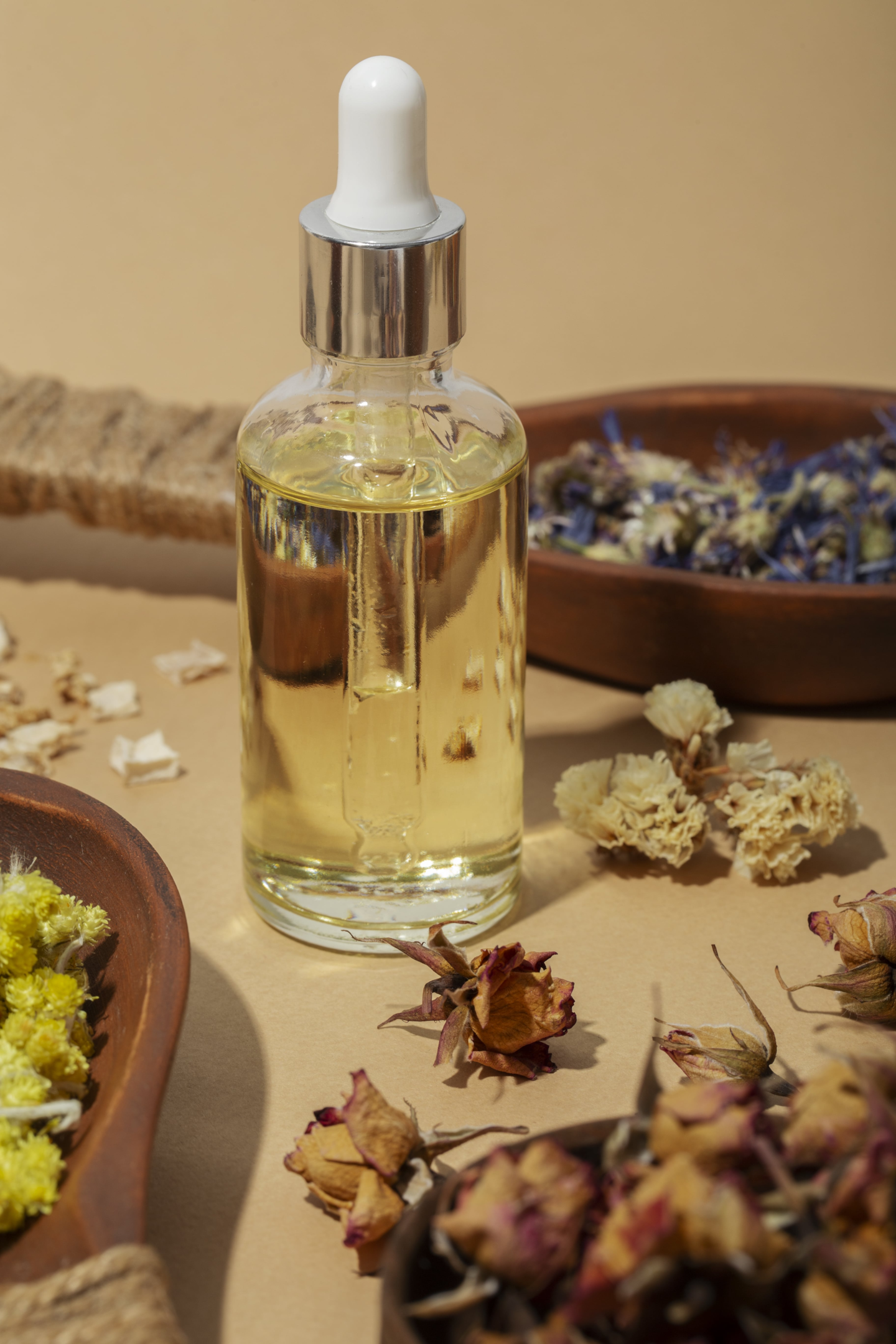
Rose essential oil is an essential oil that needs to be diluted in a carrier oil before being added to any skincare routine. This means that if you use the two oils together you could get all the skin benefits at the same time!
Make sure to add just a few drops of rose oil in rosehip oil and mix well. You can even add jojoba oil to elevate your skin care to another level! Please make sure to not be applying rose oil directly to your skin and just add a few drops to your other oils.
You can even add rosehip oil to your hair care, make sure to combine it with your other hair oils and drop several drops to the ends of your hair!
How to choose the best rosehip oil and the best rose oil?
The best rosehip oil you can choose is the cold-pressed Rosa Rubiginosa Rosehip oil. It has the greatest amount of tretinoin when compared to the other extraction methods and highest amounts of those beneficial nutrients.
The best rose oil you can choose is the Rose Essential Oil from Rosa Damascena. The damask rose has the highest amounts of essential oils, especially the ones harvested from Bulgaria and Turkey.
Unfortunately, the only downside of rose oil is how expensive it can be! 🙁
What are the Potential Side Effects of Rose Oil and Rosehip Oil?
Regarding Rosehip oil, it is considered a very safe skincare ingredient with no side effects actually proven. It is gentle on the skin!
There is just one singular paper from 2018 stating that after rosehip oil application contact dermatitis has occurred.
Just to be on the safe side apply several drops to your forearm or a tiny area of your face and wait for a while to see how your skin reacts!
Rose oil, on the other hand, is packed with fragrance components like citronellol, geraniol, and nerol which can be a huge trigger for allergic reactions!
As I have mentioned above if you are suffering from sensitive skin, avoid using rose oil on your skin.
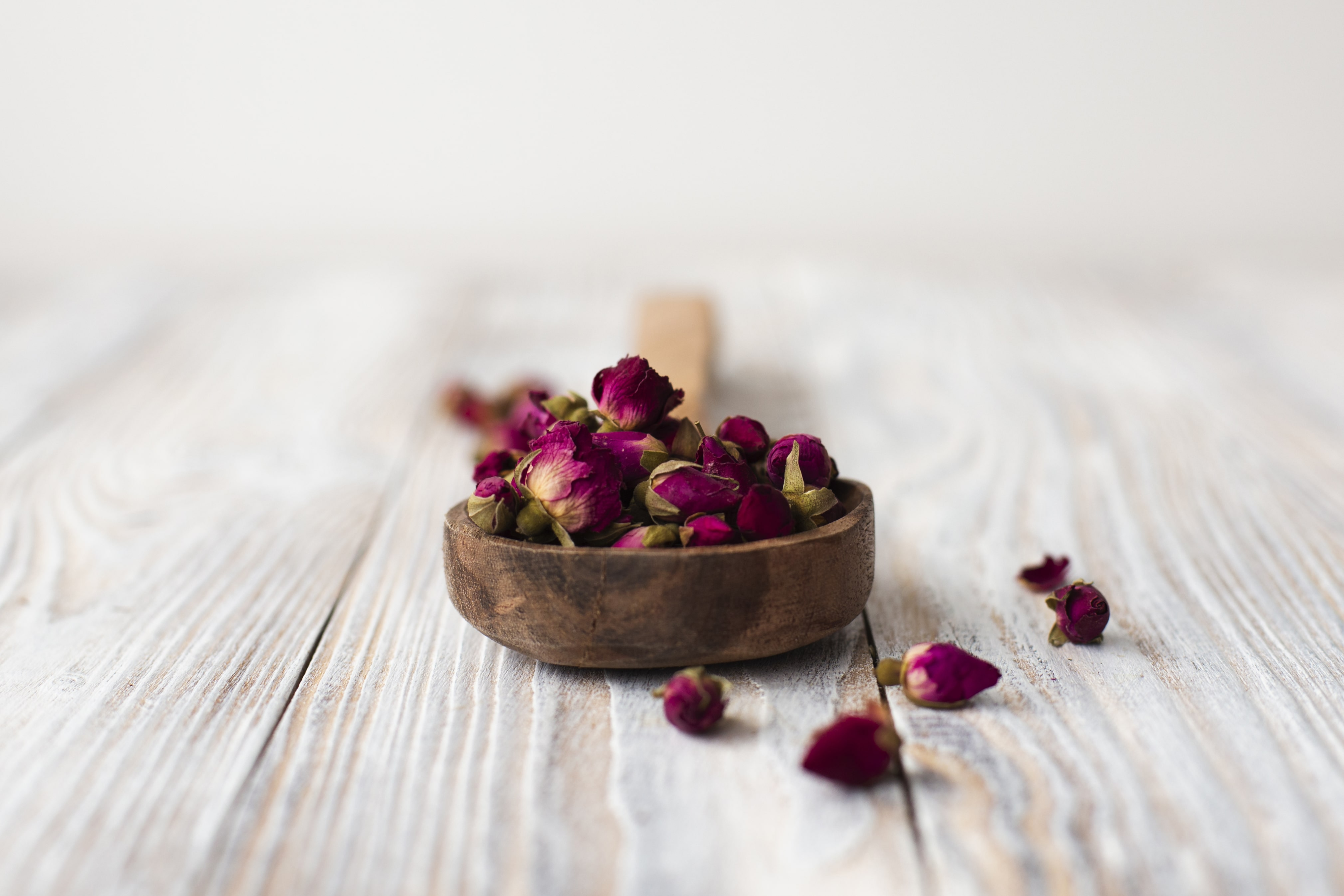
Rose oil vs Rosehip Oil – Which One is Better?
The debate is fierce and real!
If I have to use them separately I would definitely use rosehip oil! It is nourishing and enriching for any skin type. But the golden middle is when you can combine the two roses together and enjoy the benefits of the two worlds! Of course, as long as your skin can tolerate it!
Let me know what you think in the comments and thank you so much for reading!





